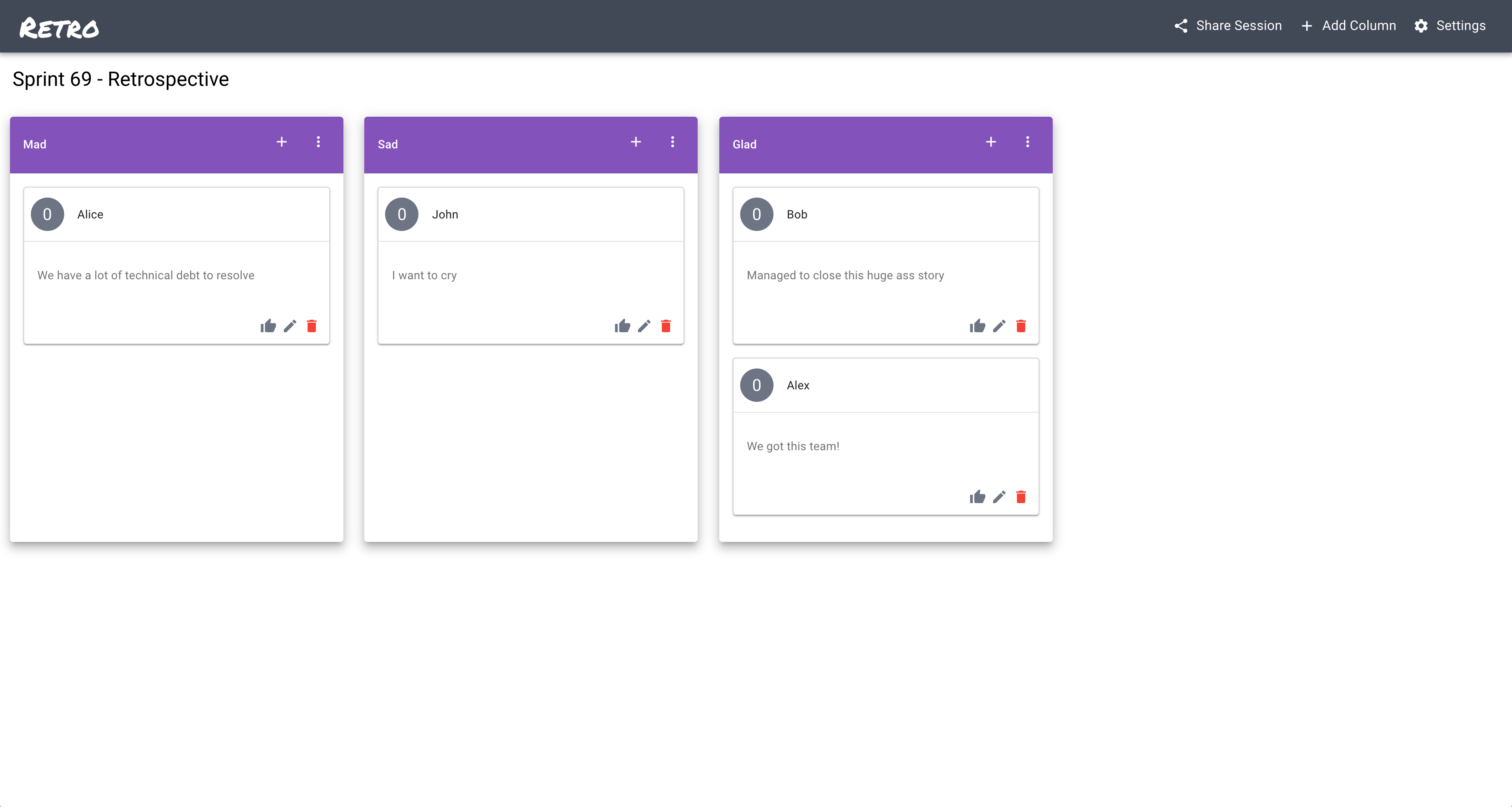- What is Retro?
- Example - Retrospective
- Example - Planning Poker
- Usage Locally
- Branching
- Deployment Examples
- Contributing
- Project State
Retro is a tool that you can use for retrospectives and planning poker sessions. The goal of Retro is to aid teams in remote retrospectives.
At work, we were using third party retrospective tools, which meant we couldn't express ourselves freely because of privacy reasons. Retro provides an open-source solution, where you can host the app on your own servers, so you can discuss freely again, since you own the data.
Install dependencies
$ cd backend && npm i && cd ..
$ cd frontend && npm i && cd ..Run servers
$ cd backend && npm run start:dev && cd ..
$ cd frontend && npm run start && cd ..- The
masterbranch is the latest development stage - Stable releases are tagged with their respective version number
- There might be feature branches that contain new experimental stuff
- Install PM2 on your server
- Clone this project on your server
- Install the dependencies by running
npm ionbackendandfrontend - Check if the proxy settings are correct
- Check
backend/src/config/index.ts - Check
frontend/src/setupProxy.js - Check
frontend/src/utils/index.ts
- Check
- Provide an
.env.production.localfile inside offrontend# Example REACT_APP_PROD_URL=http://mydomain.com REACT_APP_PROD_PORT=80 - Build the frontend by running
npm run deploy - Go to the
backendfolder and runpm2 start processes.json
- There is a
Dockerfileon the project root which builds everything and runs the server - You might want to define your own restart policy then
- The server runs without process managers. You can read here why.
- This project uses Prettier and the latest LTS version of Node.js
- You can also develop with the provided Docker containers!
- on Linux, make sure to set an environment variable, since
host.docker.internalis not working:export DOCKER_HOST_IP=$(docker network inspect bridge --format='{{(index .IPAM.Config 0).Gateway}}')
- on Linux, make sure to set an environment variable, since
- You can always watch the current state of the project at Trello
Thanks goes to these wonderful people (emoji key):
Yadullah Duman 💻 🚧 📆 👀 🤔 |
Adrian Endrich 💻 |
Claas Busemann 💻 |
PaulaBre 💻 |
Tobias 💻 |
ravensinth 💻 |
Marius Wichtner 💻 |
This project follows the all-contributors specification. Contributions of any kind welcome!





